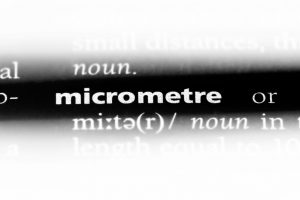“μm” means micron or a micrometre. A micron is a unit of measure that equals the thousandth portion of one millimetre or a millionth portion of a metre.
Comparatively, a single strand of average human hair measures a diameter of 70μm which is over 200 times bigger than a dust particle of 0.3μm in diameter.
Dust from commonly used antiperspirant measure between 6-10μm, anthrax pathogens measure between 1-5μm and particles from the common asbestos range between 0.9-90μm in diameter.
Most of the air, especially in the lower levels of the atmosphere is polluted with plenty of dust particles of varying sizes. Animal dander, soil and debris, body and air-freshening aerosols, motor vehicle and industrial gases are some of the familiar sources of air pollution.
Contents
Key Takeaways
- A micron, denoted as “μm,” is a unit of measurement equal to one-thousandth of a millimetre or one-millionth of a meter.
- Various particles, including dust, pathogens, and asbestos, come in different micron sizes, with health implications.
- High-Efficiency Particulate Air (HEPA) filters are designed to capture particles with a diameter of 0.3μm or more, making them effective at removing harmful particles from the air and improving respiratory health.
HEPA Filters and Microns
The conversation about improving air purity has spurred technological development of home air purifiers to arrest harmful dust particles before they are inhaled into the human body and cause illnesses. Since efforts to curb air pollution and protect life cut across political borders, shared standards of many and effective air purifiers requires filters to sieve and remove particles with a diameter of 0.3μm or more.
 Particles that range from 0.3 to 0.9 micron are a significant health concern because they are small enough to get past the tiny hairs that line and protect the nasal and breathing airways and are too big to be easily exhaled.
Particles that range from 0.3 to 0.9 micron are a significant health concern because they are small enough to get past the tiny hairs that line and protect the nasal and breathing airways and are too big to be easily exhaled.
High-efficiency Particulate Air (HEPA) is a term that refers to a standard of air filters that have been tested and approved as having proficiency of absorbing 99.95% of all dust particles in the air with a diameter of 0.3μm or more. This standard requirement ensures HEPA filters are more efficient in removing particles with a larger diameter of more than 0.3μm.
HEPA air filters will not clean bad odour or filter other gases but are highly effective in removing tobacco, human hair, pet fur and charcoal particles among other types of elements in the air. By design, a HEPA filter is made of a fine layer of glass-fibre with microscopic holes that catch pathogenic dust.
The technology behind HEPA filters was initially coined in the 1940s when the USA army required a solution in the form of a filter material against harmful radioactive elements in the air in times of war. Many vacuum cleaning machines have also adopted this technology to suck in dusty air and to sieve the dirt particles out.
HEPA filters are known to have great health benefits for asthmatic persons as HEPA material can sieve out fine particles of pollen dust from the air or dust trapped in floor carpets.
HEPA filters have a direct impact in regulating the occurrence of chronic heart and lung diseases and other respiratory symptoms such as breathing difficulties which can be indirectly caused by pathogenic dust floating on air.
The role of HEPA filters and air purification equipment in our lives cannot be contradicted especially in a world where respiratory infections are common. The manufacture and sale of HEPA filters and air purifiers weigh more towards improving healthy living than the commercial motivation to make money; HEPA filters and air purifiers are a form of enhancing someones quality of life.
Heat Pump Source: Reliable Heating and Cooling Solutions
At Heat Pump Source, we take pride in our unwavering commitment to serving the UK with top-tier HVAC solutions. From the efficiency of heat pumps and the cool relief of air conditioning to the warmth of boilers, radiators, and underfloor heating, our dedicated team is always at the forefront of innovation. We understand the unique needs of every household and business, and we strive to provide dependable health and cooling products and services that are tailored just for you. Ensuring your comfort and satisfaction is our utmost priority. Whether you have questions, need guidance, or require support, we’re always here to assist. Please don’t hesitate to contact us; we’re eager to be of service.
Conclusion
Understanding a micron’s concept and particle size’s significance in air quality is crucial for our health and well-being. With their ability to capture particles at the 0.3μm threshold, HEPA filters play a vital role in enhancing air quality. As we continue to grapple with respiratory issues and environmental concerns, the use of HEPA filters and air purifiers emerges as a pivotal step in promoting healthier living conditions. These technologies not only combat dust and pollutants but also contribute to reducing the risk of chronic diseases. In our pursuit of a healthier and cleaner environment, HEPA filters and air purification equipment undoubtedly stand as valuable assets.
About the Author
At Heat Pump Source, our articles are the product of a collaborative effort among a team of highly skilled HVAC experts. Our dedicated professionals, hailing from diverse backgrounds in heating, ventilation, air conditioning, and refrigeration, contribute their extensive knowledge and experience to every piece of content. This multidisciplinary approach ensures comprehensive coverage. Our commitment is to deliver authoritative, reliable, and tailored advice to meet the unique needs of every household and business across the UK.

